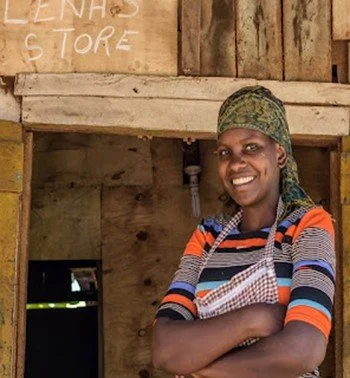Reading Luke/Acts Together #64 – Funeral Attendees
Acts 9:36-43 takes us to Joppa – the port where Jonah attempted to flee the Lord’s call, and the town where Peter had his vision (at Simon the Tanner’s home) of all the food on the sheet (coming soon in Acts 10!).
Center stage for today is Dorcas, the Greek name for Tabitha (meaning “gazelle”). “She was always doing good and helping the poor.” Always! John Wesley wryly told us that the doctrine of the devil is to do good when you feel like it – a surefire formula for spiritual hollowness, and a vapid church. Christianity spread, not simply because they had better ideas. The Christians led better lives for others; skeptics complained that the Christians made them look bad, doing so much for those in need.
Suddenly this saintly, valuable woman died – so they summoned Peter, a known miracle worker, from Lydda, just 10 miles away. Notice this lovely detail: when he arrived, “they showed him the clothing she had made for them.” Artifacts of holiness. At her funeral, the poor came – and had something to show. A preaching question: will the poor or disenfranchised attend your funeral? Maybe you’ve dropped off some worn out items for the poor at some collection – but would the poor know you? Dorcas made them nice new items!
A friend of mine learned a cool lesson. For years, he would give his children's old threadbare coats to our Church's collection - but the Spirit gave him a better idea: now, when he shops for a new coat for his son or daughter, he simultaneously picks out a brand new coat to buy and give to the poor. And he doesn't donate it, but delivers it, in person, to someone he then hopes will become a friend.
Dorcas was a seamstress. I like to think about labor that requires patience – and I suspect that long work, with loving attention to detail, is pleasing to God, and that when we do small things, sorting socks or knitting or mowing the lawn, we can make our labor into a prayer. Do you know any seamstresses these days? Rosa Parks was a seamstress. Mary sewed Jesus’ clothing.
Is there a male equivalent of seamstress? Seamster? How about Silas Marner, the miserly weaver, who discovered a little girl, Eppie, and as he cared for her, he was the blessed one, discovering sunshine, joy and life.
Peter speaks to the dead, the lack of a pulse being no barrier to the hope of the gospel. “Tabitha, get up!” made me scramble to the Greek… and left me speculating if in Aramaic Peter would have said “Tabitha, kum,” a rhyming echo of what Jesus said to Jairus’s daughter, “Talitha kum” (Mark 5:41). What resonance!
A few years ago, I was in Kenya visiting the fabulous, effective, empowering ZOE Ministry there. In a little rural community, the chaplain of a group of working orphans, Lena (only 19 years old), preached in Swahili about Dorcas. I couldn’t translate one word – but have rarely been so moved by a sermon. She began jauntily, stroking woven fabrics she’s hung along the wall. Then she fell down as if dead – and then she knelt and wept, audibly. I followed along as I supposed Peter had arrived. He knelt, and she rose up from the floor – and there were shouts and laughter from the Kenyans listening, huge, tears of joy. If you’re an impoverished orphan in Kenya, news and the hope of a resurrected life, the possibility of a miracle, are so longed for, and even expected, that it’s real enough to elicit intense emotion. Americans slump in their pews and yawn.
I hope to grow up to preach like Lena. I hope to grow up to live like Dorcas. You’ll know if I did when you look around to see who’s at my funeral.
